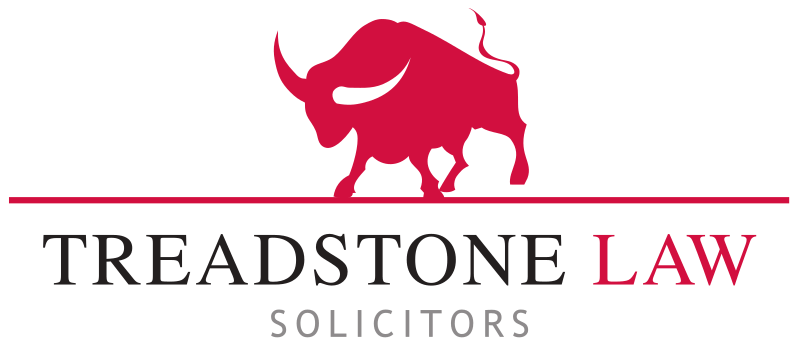Legal Services from our Expert Solicitors
Check if you require probate or request a call back
Do you need to obtain a Grant of Probate from the court?
Yes + Speak to our teamWhat is probate and why do I need it?
When a person dies then the assets of that person and their possessions must be disposed of according to the law. The law states that a person who has assets over and above a certain value you must obtain the legal right to dispose of that property either according to the Will terms and conditions (if there is one), or according to the Intestacy Rules of Survivorship. To obtain the legal right to dispose of the estate we must obtain a Grant of Probate from the court.
The Grant of Probate is simply a legal document which proves that you have the entitlement to deal with things such as bank accounts, sale assets, settle debts and pay gifts under the Will or distribute the estate generally.
There are two different forms of probate:
If there is a Will
If a person wrote a valid legal Will, then you apply for and obtain a Grant of Probate in order to allow you to deal with the estate.
What if there is not a Will?
If that person did not leave a Will, then you can obtain Grant of Letters of Administration, which is essentially the same thing as a Grant of Probate but slightly different forms.
This is essentially the same thing in that it gives you the legal right to administer the estate and deal with all of the possessions of the deceased person.
What is the process of obtaining a Grant of Probate?
This can be broken down into a number of separate phases.
Phase 1
Firstly we must identify and value all of the deceased’s assets including real estate, any investments and personal possessions. We must then identify and value all of their debts and liabilities including taxes, loans and the usual domestic bills. We then take away one from the other to determine the value of their estate.
Phase 2
We then have to verify who is entitled to inherit from the estate either under the terms of the Will or under the Rules of Intestacy if there is not a Will.
Each person who is likely to inherit will need to provide the necessary identification to prove that they are the necessary beneficiaries.
Phase 3
Once we have worked out the value of the estate and applied any exemptions, we will then need to pay inheritance tax to HM Revenue & Customs. We need to do this by submitting an IHT return. Once this has been applied for, we can then move on to stage 4.
Phase 4
We apply to the Probate Registry for the Grant of Representation/Probate. This is the legal document which confirms the person applying the right to deal with and administer the estate. This is absolutely essential if the estate has a larger value than say £10,000.00 or there is real estate (property) within the estate. You will not be allowed to transfer real estate or sell it until you have obtained a Grant of Probate/Letters of Administration.
Phase 5
Once the Grant of Representation/Probate has been provided in the form of a certificate you then go on to administer the estate by distributing the asset, paying off the debts, including income tax, capital gains, tax etc.
Phase 6
You would then prepare an Estate Account to prove where the money has gone.
Final Phase
You would then, providing there are no challenges to the estate, distribute the final assets to any beneficiaries in line with the Will or the Rules of Intestacy.
Who is the person who can become a personal representative in probate and obtain the Grant of Probate?
This will be the person who has been appointed under the terms of the Will or the person who is first in line under the Rules of Intestacy. In reality, it is possible for any person to become an administrator of the estate, but it is certainly better for the person name in the Will to be so as it removes any complications.
Do I always need probate?
Not necessarily. If the value of the estate is less than £20,000.00 a lot of banks etc will release up to £20,000.00 without probate. If however, the deceased owned a property, owed shares in their sole name and had over £20,000.00 in assets.
Remember assets which are owed jointly are passed to the surviving owner and probate is not necessarily for these items at this stage, although, it may be prudent to obtain it for a later transfer of property or later sale.
Tenants in common
If you own property as tenants in common, then you will need to obtain probate.
Unmarried parties
This will depend on how the assets of the unmarried couple were held. Did they own them as joint tenants and have joint bank accounts, in which case probate won’t be required but, if property was owned as tenants in common for the very large assets it is probably prudent to obtain probate at this point.
Who is responsible for probate?
The person named as the executor in the Will is responsible to apply for probate. If there isn’t a Will the Inheritance Rules called the Rules of Intestacy will determine whose responsibility it is.
What time of service?
You can have a simple service for a fixed fee for the obtaining of a Grant of Probate allowing you to then go on to deal with distribution of the assets or we can deal with the whole thing for you.
Not found an answer to your question?
Why Treadstone Law?
Our civil litigation department has over 20 years’ experience in private clients work and have a high success rate.
We are rated Excellent

